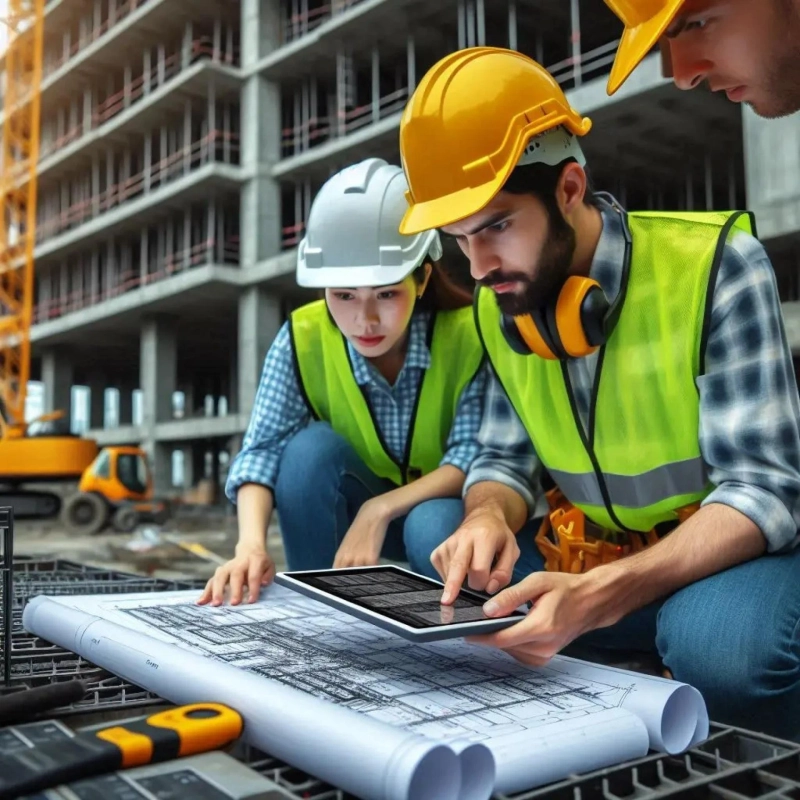In the ever-evolving landscape of construction, the integration of technology has not only revolutionized traditional practices but has also paved the way for more sustainable and efficient building methodologies. Among these innovations, Building Management Systems (BMS) stand out as pivotal elements in fostering sustainable building technology. These systems offer comprehensive solutions that significantly reduce energy consumption, promote environmental sustainability, and enhance the overall operational efficiency of building infrastructures. This blog explores how Building Management Systems are crucial in driving sustainability in construction practices.
The Role of Building Management Systems in Modern Construction
Building Management Systems, at their core, are advanced, interconnected networks capable of centralizing control over a building's essential systems, including heating, ventilation, air conditioning (HVAC), lighting, security, and more. The ability of BMS to oversee and regulate these components not only ensures optimal operational performance but also supports significant energy and cost savings, making them a cornerstone in the realm of sustainable building technology.
Enhancing Energy Efficiency
One of the primary contributions of Building Management Systems to sustainable construction is their ability to enhance energy efficiency. By using smart building solutions, BMS can automate and optimize the use of resources. For instance, smart sensors can detect unoccupied rooms and reduce lighting and HVAC usage, significantly cutting down energy waste. This not only aligns with green building systems principles but also reduces the overall environmental footprint of buildings.
Improved Resource Management
Building Management Systems enable detailed monitoring and management of resource consumption, leading to more informed decision-making. With real-time data analytics, facility managers can identify patterns in energy usage and implement strategies for better resource management. This proactive approach in monitoring helps in maintaining the balance between operational efficiency and sustainable usage of resources.
Reduction of Operational Costs
The integration of BMS into construction practices offers substantial cost benefits over the life span of a building. By optimizing system operations and enhancing energy efficiency, these systems reduce the overall expenditure on energy and maintenance. This aspect is particularly crucial as it provides a strong incentive for businesses and residential complexes to adopt smart building solutions that support sustainability.
Supporting Regulatory Compliance and Sustainability Goals
Today, many regions have implemented strict regulations requiring buildings to adhere to specific environmental standards. Building Management Systems play a crucial role in ensuring compliance with these regulations by efficiently managing energy consumption and reducing emissions. Furthermore, as companies increasingly aim to meet Corporate Social Responsibility (CSR) goals related to environmental sustainability, BMS provide a viable solution to support these initiatives.
Enhancing Occupant Comfort and Safety
While the focus of sustainable construction often lies on environmental benefits, the impact of BMS on occupant comfort and safety is equally significant. By maintaining optimal indoor air quality and ensuring efficient operation of security systems, BMS create a safer and more comfortable living and working environment. This human-centric approach in sustainable building practices not only enhances the well-being of occupants but also boosts productivity in commercial settings.
Case Studies: Real-World Impact
The effectiveness of Building Management Systems in promoting sustainability can be observed in numerous case studies across the globe. For example, the Edge in Amsterdam, often cited as one of the greenest buildings in the world, utilizes an extensive BMS that controls every aspect of the building’s environment. Such applications underscore the tangible benefits of integrating BMS in modern construction.
Challenges and Future Directions
Despite the advantages, the adoption of Building Management Systems comes with its set of challenges, including high initial installation costs and the need for specialized skills to operate advanced BMS technologies. However, with continued advancements in technology and a growing emphasis on sustainable construction practices, these challenges are gradually being addressed. The future of construction will likely see a greater integration of AI and IoT in Building Management Systems, further enhancing their efficiency and sustainability impact.
Conclusion
Building Management Systems are at the forefront of revolutionizing construction practices. By promoting energy efficiency, reducing operational costs, and enhancing occupant comfort, BMS play a pivotal role in advancing sustainable building technology. As the construction industry continues to evolve, the integration of such smart building solutions will not only become more common but will also be critical in shaping the sustainable landscapes of our cities. In embracing these technologies, the construction sector can significantly contribute to a more sustainable and environmentally friendly future.
Adopting Building Management Systems is not just a step towards innovation but a leap towards sustainable construction practices that resonate with global environmental goals and the urgent need for energy conservation. As we look forward to a greener future, the role of BMS in sustainable construction cannot be overstated.
VertPro is the go-to hub for contractors dedicated to elevating energy performance upgrades for their clients. Our expansive suite of offerings includes expert Commercial Energy Audits, adept Benchmark Compliance consultation, and expansive Construction Marketplace. At VertPro®, we pride ourselves on delivering cutting-edge SaaS technology solutions that simplify the journey through Energy Benchmarking, and Energy Audits/RCx Plus, all while maintaining full compliance with a myriad of more than 60 Energy Benchmarking and Energy Efficiency Regulations nationwide.
At VertPro, we don't just provide the insights and tools for energy management; we also bridge connections between qualified contractors and our client base, eager to upgrade their buildings. This creates a Marketplace where you can expand your project portfolio, ensuring that you'll have more opportunities to apply your skills and grow your business.



